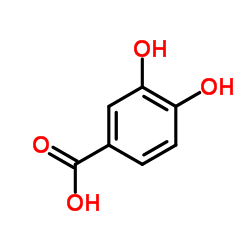A mutant screening method by critical annealing temperature-PCR for site-directed mutagenesis.
Ying Liu, Ting Wu, Jian Song, Xuelian Chen, Yu Zhang, Yu Wan
文献索引:BMC Biotechnol. 13 , 21, (2013)
全文:HTML全文
摘要
Distinguishing desired mutants from parental templates and undesired mutants is a problem not well solved in Quikchange™ mutagenesis. Although Dpn I digestion can eliminate methylated parental (WT) DNA, the efficiency is not satisfying due to the existence of hemi-methylated DNA in the PCR products, which is resistant to Dpn I. The present study designed a novel critical annealing temperature (T(c))-PCR to replace Dpn I digestion for more perfect mutant distinguishing, in which part-overlapping primers containing mutation(s) were used to reduce initial concentration of template DNA in mutagenic PCR. A T(c)-PCR with the same mutagenic primers was performed without Dpn I digestion. The T(c) for each pair of the primers was identified by gradient PCR. The relationship between PCR-identified T(c) and T(m) of the primers was analyzed and modeled with correlation and regression.Gradient PCR identified a T(c) for each of 14 tested mutagenic primers, which could discriminate mismatched parental molecules and undesired mutants from desired mutants. The PCR-identified T(c) was correlated to the primer's T(m) (r = 0.804, P<0.0001). Thus, in practical applications, the T(c) can be easily calculated with a regression equation, T(c)= 48.81 + 0.253*T(m).The new protocol introduced a novel T(c)-PCR method for mutant screening which can more efficiently and accurately select against parental molecules and undesired mutations in mutagenic sequence segments.
相关化合物
| 结构式 | 名称/CAS号 | 分子式 | 全部文献 |
|---|---|---|---|
 |
生长激素
CAS:9002-72-6 |
C7H6O4 |
|
Actions of NPY, and its Y1 and Y2 receptors on pulsatile gro...
2014-12-03 [J. Neurosci. 34(49) , 16309-19, (2014)] |
|
Neonatal estrogen exposure results in biphasic age-dependent...
2015-01-01 [Endocrinology 156(1) , 193-202, (2015)] |
|
Preclinical gastrointestinal prokinetic efficacy and endocri...
2014-07-25 [Life Sci. 109(1) , 20-9, (2014)] |
|
GH administration patterns differently regulate epidermal gr...
2014-05-01 [J. Endocrinol. 221(2) , 317-23, (2014)] |
|
Supplement use by UK-based British Army soldiers in training...
2014-10-14 [Br. J. Nutr. 112(7) , 1175-84, (2014)] |